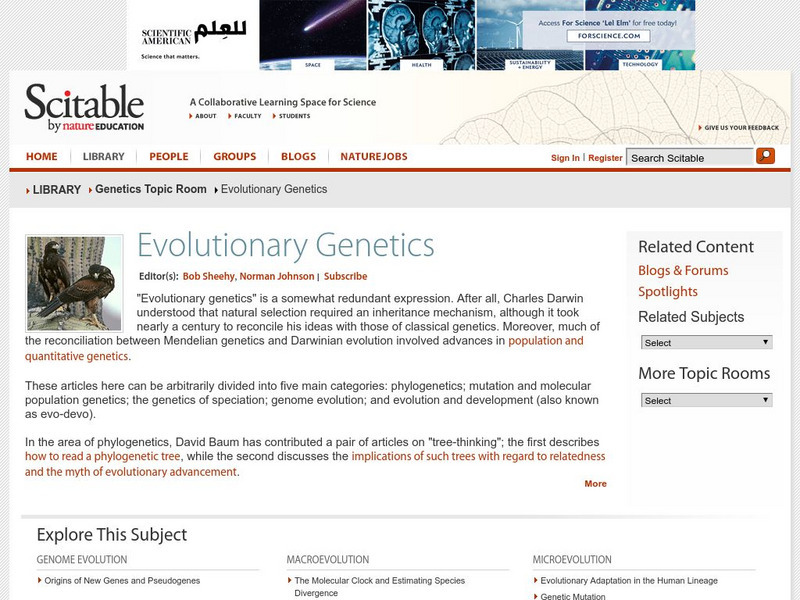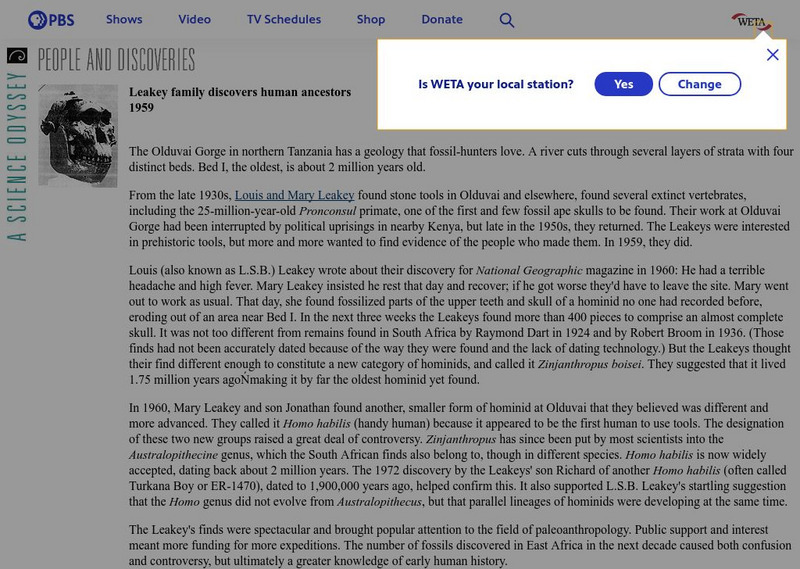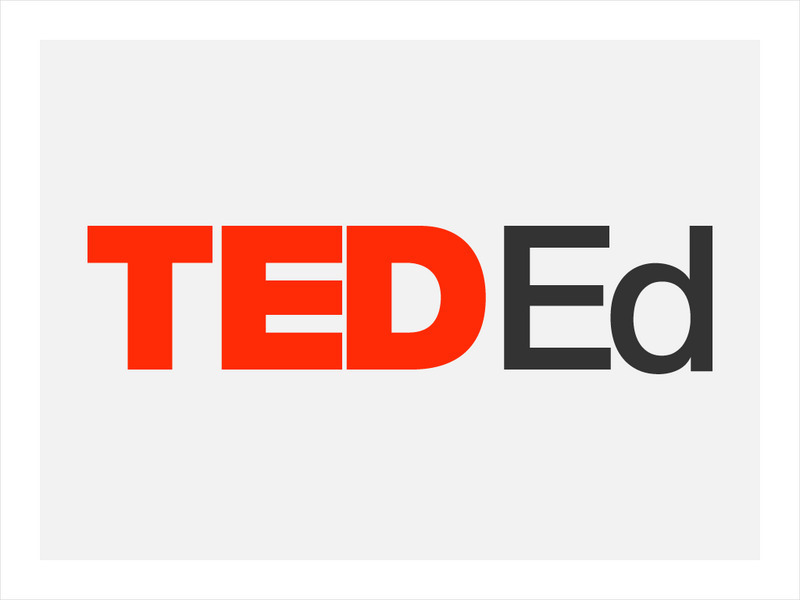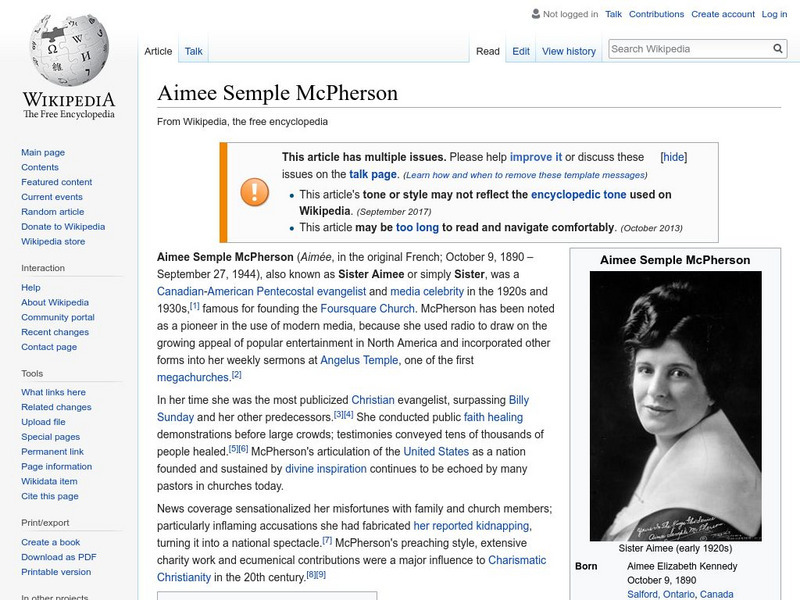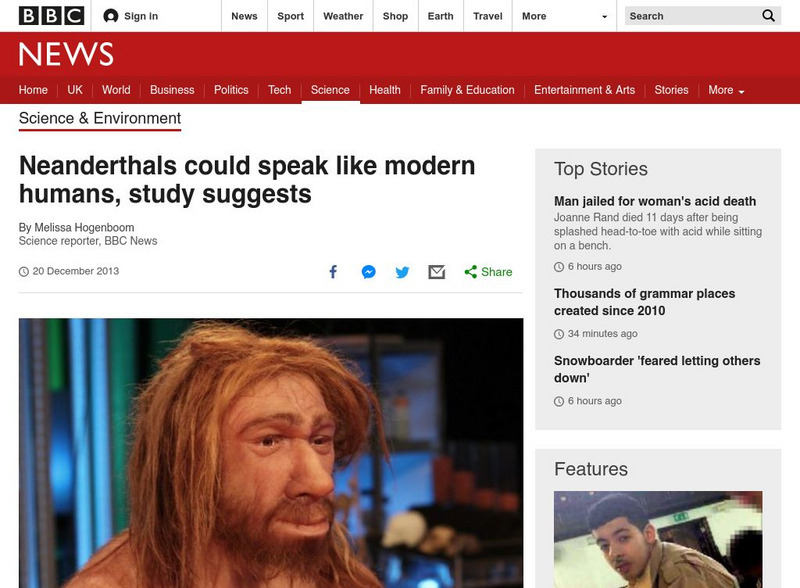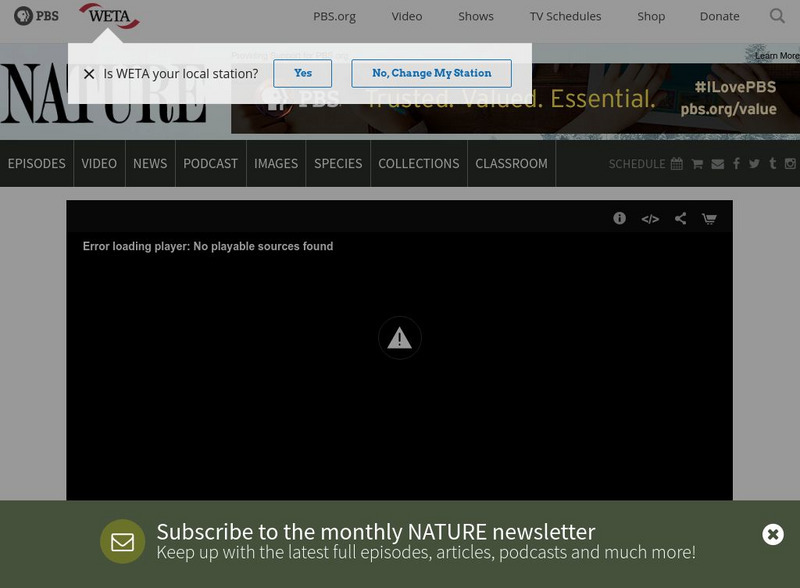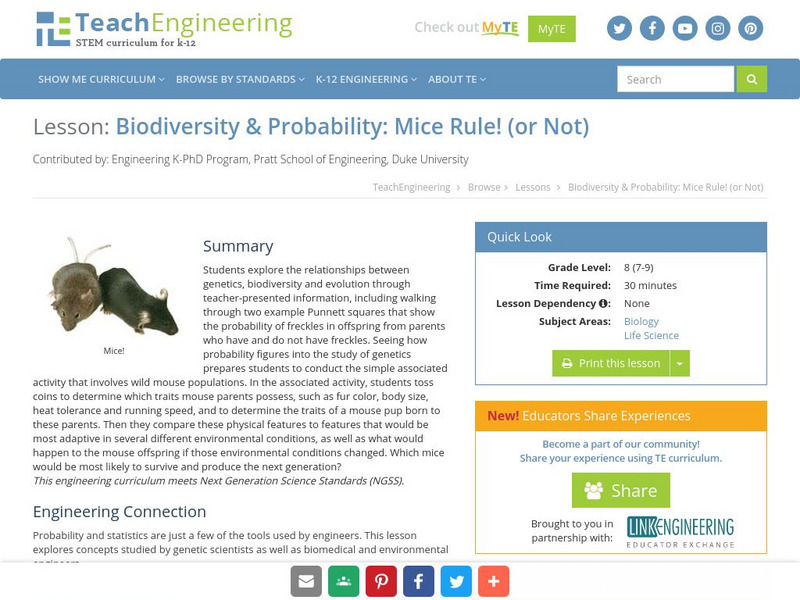Hi, what do you want to do?
Khan Academy
Khan Academy: Gallery: Human Ancestors
A gallery of information about our human ancestors. Explore this page to find the genetic differences and similarities between humans and other species.
Other
World Wide Words/exploring the English Language
"World Wide Words is devoted to the English language - its history, quirks, curiosities and evolution. The Words site is organized into sections, each with its own index to help you find your way about."
Exploring Ancient World Cultures
Exploring Ancient World Cultures: Literature and the Middle Time
This is an essay from the University of Evansville discussing the evolution of the Middle Ages and the formation of various languages that would yield literature.
University of California
Ucmp: Life Has a History
This is a very good introduction to the role evolution plays in the development of biodiversity. These topics and extinction are explained with the use of colorful interactive pictures.
Pennsylvania Historical and Museum Comission
Explore Pa History: Dorsey Brothers
A succinct biographical sketch that examines contributions to the jazz and swing eras by noted musicians, band leaders, and Pennsylvania natives, Tommy and Jimmy Dorsey.
Science Education Resource Center at Carleton College
Serc: Science and Religion
A instructional activity using the strategy of structured academic controversy where students explore the roots of differing perspectives on evolution, In the process, they develop a deepened understanding of science and religion, and...
Nature Research
Scitable: Evolutionary Genetics
A collection of articles on evolutionary genetics focusing on the topics of phylogenetics, mutation and molecular population genetics, the genetics of speciation, genome evolution, and evolution and development. Learn how to read a...
PBS
Pbs Learning Media: Genetic Variation
This video segment from NOVA: "Cracking the Code of Life" explores the genetic similarities and differences among organisms.
TED Talks
Ted: Ted Ed: Nina Jablonski Breaks the Illusion of Skin Color
In this video, Nina Jablonski explains that human skin pigmentation is a product of the environment and evolution and explores skin's many different traits. [14:46] Includes a brief quiz and a list of additional resources to explore.
PBS
Pbs: Leakey Family Discovers Human Ancestors
The PBS site covers the Leakey family and their discoveries in Olduvai Gorge in Tanzania. This information was part of a PBS exploration of human evolution.
Australian Museum
Australian Museum: Dinosaurs and Their Relatives
Explore extensive information about a variety of Australian dinosaurs, as well as Chinese ones. The evolution of birds from dinosaurs is also described. This online exhibit offers images and facts about dinosaurs, their relatives and...
PC Technology Guide
Pc Tech Guide: Motherboard
Explore this site to gain a better understanding of motherboards. Detailed information about the evolution of motherboards, BIOS, form factors, CPU interfaces and more.
National Endowment for the Humanities
Neh: Edsit Ement: Learning the Blues
This lesson plan introduces young scholars to the blues. The origin and development of the blues is explored as well as its distinctive structure.
TED Talks
Ted: Ted Ed: Let's Talk About Sex
In this video, John Bohannon and Black Label Movement mix talk and dance to implore honest communication between parents and their kids about sex. [10:43] Includes a brief quiz and a list of additional resources to explore.
Wikimedia
Wikipedia: Aimee Semple Mc Pherson
Extensive article that explores in great detail the life of Aimee Semple McPherson, fundamentalist evangelist.
Smithsonian Institution
National Museum of Natural History: What Does It Mean to Be Human, Human Characteristics
Explore walking upright, tools and food, bodies, brains, social life, language and how humans ultimately changed the world. Excellent charts, pictures and videos accompany easy-to-understand text on the earliest humans.
BBC
Bbc: Week of 12 23 13: Neanderthals Could Speak Like Modern Humans
How do you imagine Neanderthals to have sounded? Have you ever considered that they might sound like you? Read this article to explore what a new study now says about the speaking capabilities of these creatures.
PBS
Pbs Learning Media: Primary Source Set: The Scopes Trial
This collection uses primary sources to explore the 1925 Scopes Trial.
PBS
Pbs Learning Media: Sweaty T Shirts and Human Mate Choice
This video segment from Evolution: "Why Sex?" explores the "sweaty T-shirt experiment," which showed that humans may unconsciously be drawn toward a specific kind of genetic variation in a mate.
Scientific American
Scientific American: Happy 200th Birthday Charles Darwin: In Depth Reports
Explore the thinking of Charles Darwin, and read how his theory of evolution survives, thrives, and shapes the way we learn about nature. (February 2009)
CK-12 Foundation
Ck 12: Episd: History of Life
[Free Registration/Login may be required to access all resource tools.] Students will explore ways to study the past to learn about the history of life. Understand how fossils, DNA analysis, and molecular clock help researchers study...
PBS
Pbs: Nature: What Females Want, Wildlife and Sexual Selection
This two-part video series explores how females and males relate to each other in the animal kingdom. It shows how the strategies that males and females use to attract each other impact on the evolution of a species.
TeachEngineering
Teach Engineering: Mice Rule! (Or Not)
Students explore the relationships between genetics, biodiversity, and evolution through a simple activity involving hypothetical wild mouse populations. First, students toss coins to determine what traits a set of mouse parents...
Smithsonian Institution
Smithsonian Science Education Center: Natural Selection: Common Misconceptions
This video explores the misconceptions that students hold about natural selection. Go inside your student's heads to see what they are thinking during a lesson on evolution. Follow these suggestions for addressing these common...











